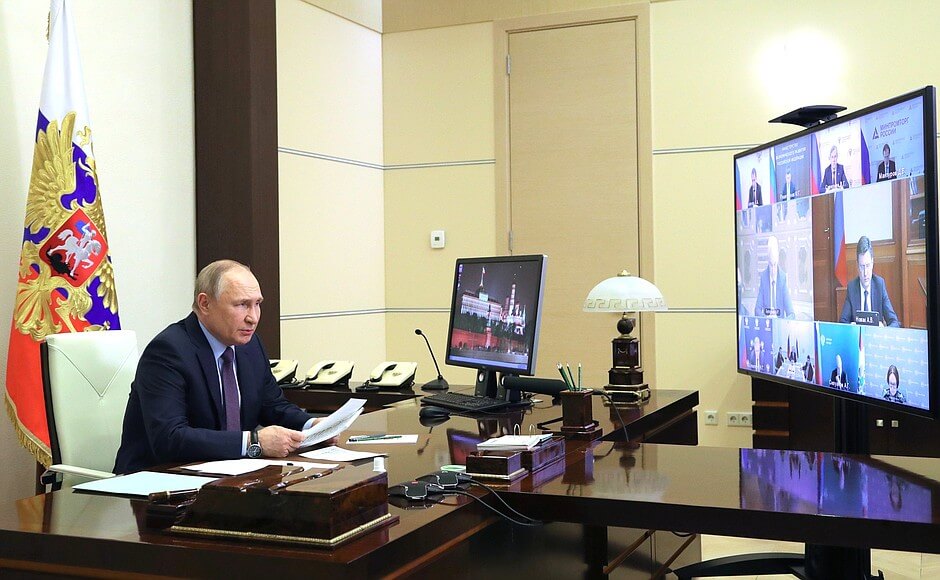On Thursday, Russian President Vladimir Putin held a meeting with high-ranking members of his cabinet to discuss short and long-term measures regarding Russia’s heavily-sanctioned oil and gas sector.
He highlighted that the two major hurdles for Russia right now are “exports logistics” related to supplying Russian oil and gas as well as receiving payment for these exports, underscoring that both issues are due to the large number of sanctions imposed over the Ukraine war. Putin asserted that Russian energy companies are prepared to ward off the repercussions of these sanctions, warning that if the West continues to impose sanctions on Moscow’s energy, “the consequences of this may be extremely painful, primarily for the initiators of the policy.”
⚡️ New York Times: EU to introduce oil embargo against Russian after April 24.
— The Kyiv Independent (@KyivIndependent) April 15, 2022
The possible embargo may be introduced after the presidential run-off in France to avoid helping far-right candidate Marine Le Pen, who has railed against rising fuel prices, the NYT reported.
The Russian leader admitted that he is surprised that Western countries, particularly in Europe, are planning to introduce more restrictions on Russian energy exports. “There is no reasonable alternative to Russian gas in Europe,” Putin argued, noting that the cost of importing oil from non-contracted countries such as the United States (US) will be too heavy for Europe and European consumers. Russia still fulfils 40% of Europe’s gas needs, with some European countries being almost entirely dependent on Moscow. In fact, Europe is Russia’s most important client; the continent imports 2.4 million barrels of crude oil every day, with Germany and the Netherlands alone consuming 1.1 million barrels per day.
Taking into account the volatility in global energy markets and Russia’s losses, Putin vowed to consolidate Moscow’s energy exports by focussing on relatively stable and “fast-growing” markets in the south and the east. In this respect, he also affirmed that Moscow will “determine the key infrastructure facilities and start their construction in the near future.” In 2019, Russia and China agreed to launch a gas pipeline and later signed a 30-year contract; however, the pipeline is yet to be constructed.
Vladimir Putin has asked the Kremlin to expand exports to Africa and Latin America, with a particular focus on oil and gas
— Samuel Ramani (@SamRamani2) April 14, 2022
These two regions, which have not sanctioned Russia, are growing in importance to Moscow's foreign policy
At the end of the meeting, Putin told his cabinet to prepare a long-term plan to expand Russia’s oil and gas exports by June 1 of this year, focussing on Africa, Latin America, and the Asia-Pacific. Additionally, he asked government officials to look into the construction of oil and gas pipelines from Russia’s Western and Eastern Siberia, noting that the Arctic region will be crucial in the future.

